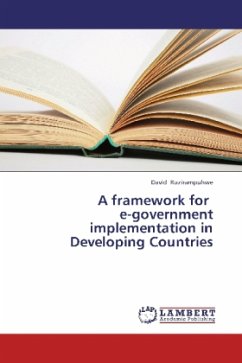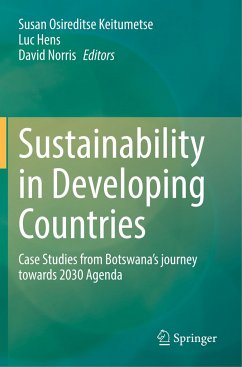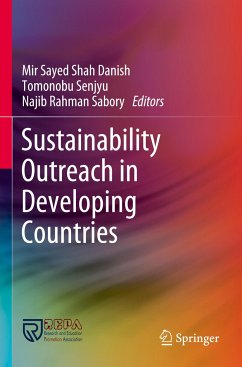
A framework for e-government implementation in Developing Countries
Versandkostenfrei!
Versandfertig in 6-10 Tagen
43,99 €
inkl. MwSt.

PAYBACK Punkte
22 °P sammeln!
Most of the developing countries are characterized by a weakness of human assets and are the most economic vulnerable in the world and yet these issues have a strong bearing on the success of e- government implementation in developing countries. In most of the developing regions where English is not the native language, availability of relevant and accessible content and the digital literacy are major issues. More than half of the population are below the poverty line or lives on less than $1.25(PPP) per day. Only 21.1% of the developing countries population use internet, compared to 71.6% of ...
Most of the developing countries are characterized by a weakness of human assets and are the most economic vulnerable in the world and yet these issues have a strong bearing on the success of e- government implementation in developing countries. In most of the developing regions where English is not the native language, availability of relevant and accessible content and the digital literacy are major issues. More than half of the population are below the poverty line or lives on less than $1.25(PPP) per day. Only 21.1% of the developing countries population use internet, compared to 71.6% of internet usage in developed countries. This study investigated the influence of income, education, ICT Infrastructure and electricity to e-government implementation in developing countries and concluded that the level of Income, Education and access to ICT Infrastructure affects citizens' demand for e-government services whereas access to electricity doesn't. We therefore propose customer segmentation as a good framework for e-government implementation in developing countries basing on situational analysis of developing countries and different existing approaches to e-government implementation












